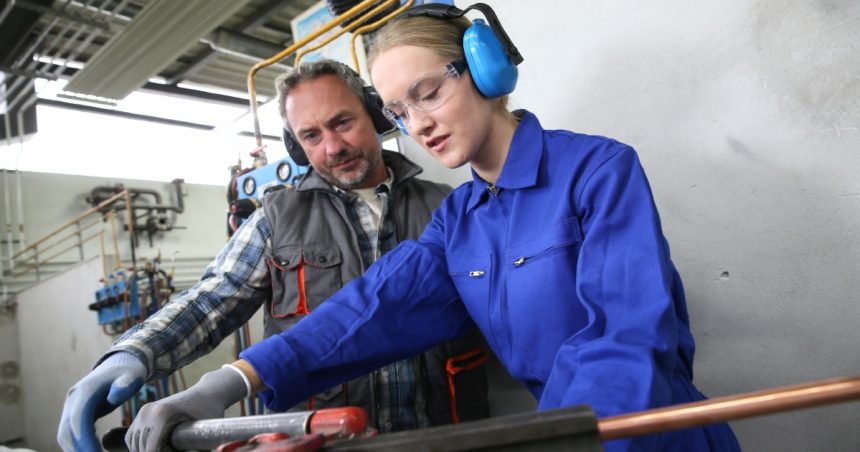The New South Wales government has pledged more than $250 million towards employing an additional 1,300 apprentices and trainees in councils across the state.
The investment boost will help fund the training needed for school leavers to launch a successful career in a sort-after trade, such as electricians, plumbers, engineers, civil construction workers, mechanics and planning cadets.
It will also provide the next generation with secure entry-level jobs and apprentice roles through permanent council positions and local government projects, reversing the trend of councils outsourcing jobs to costly contractors.
Current employment data shows many young tradies complete their apprenticeship and traineeships in local government roles before leaving to work in the local trade industry.
Funding to help fix up tradie shortage
The cash injection is the largest of its kind in nearly two decades and aims to refuel the construction sector’s dwindling supply of skilled workers, who are currently running dry on job sites nationwide.
New South Wales Premier Chris Minns says the investment will play a key role in training the tradies of tomorrow. Many will go on to help build the new housing and infrastructure the state desperately needs.
“This is the biggest state government investment in directly hiring new apprentices in recent memory and will play a critical role in building better communities across NSW.
“From electricians and landscapers to plumbers and planners, these 1,300 new apprentices and trainees will play a key role in building the homes and communities of our state’s future.
“This investment will also make a big difference in smaller towns and regional communities where fewer pathways for formal training currently exist.”
Prior to the announcement, local NSW governments were sleepwalking towards a potential employee crisis –with many of its 50,000-strong skilled workforce scheduled to retire in the next five years.
Council bosses have struggled to sufficiently replace that ageing worker population in terms of both personnel numbers and required skill areas.
However, the new policy change will see highly skilled trainees, apprentices, and cadets make up at least 15 per cent of local council workforces, with many predicted to stay on in newly created roles.
Apprentice boost helps to dig out of tradie hole
NSW Minister for Local Government Ron Hoenig says the cash injection will help safeguard the state from falling even deeper into a skills crisis.
“Councils have been crying out for a solution to the looming skills crisis for years, but the previous government did nothing to address the problem.
“This funding from the NSW Labor Government will provide a much-needed boost for our councils, which are responsible for providing the services and facilities communities use every day.
“With the housing crisis the state government’s number one focus, this investment will also make sure councils are well equipped to build the infrastructure and facilities to support growing communities.
“It is also great news for regional NSW. It will mean young people can pursue careers within their own communities, revitalising local training networks and, importantly, keeping people in our regions.”
Minister for Skills, TAFE and Tertiary Education Steve Whan says the commitment to deliver an additional 1,300 apprentices and trainees showed how the government could become a key player in training the skilled workforce of the state’s future.
“As respected employers within their local communities, councils represent a key player in workforce development across our regional, rural and remote communities, allowing people to learn lifelong skills and have good jobs within their local area.”
There is also hope the funding boost will eventually provide regional areas with a larger pool of skilled workers within their local trade industry.
United Services Union General Secretary Graeme Kelly says this would ensure regional areas have the workers needed for local infrastructure and housing projects.
“Over 1000 young people across NSW will soon start their first job thanks to this scheme, and in the bush, that’s especially valuable as it means they’ll stay put rather than move to our swollen cities looking for work or training opportunities,” Mr Kelly said.
“You can’t have a nice, clean pool to swim in summer or freshly mowed ovals on the weekend unless you have highly skilled, hard-working council workers providing these front-line services seven days a week.







